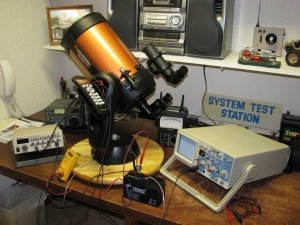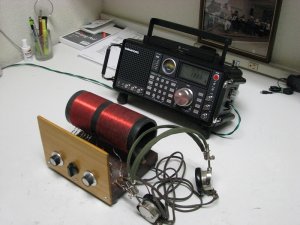Grampa Don
Yep, that's me
- Location
- Orange county, Calif.
Any ex SWL's here? I say ex because the hobby is pretty much dead now. There used to be many international broadcast stations. The BBC beamed all over the world. On a good night you could pick up a bunch; Japan, China, the Netherlands, Australia, and a lot of others. If you sent them a letter with details, they would respond with an SWL card for your collection. Once I got a ball point pen from Radio Japan. When I was a kid, I had a small war surplus receiver that only tuned 40 meters. I spent many hours listening to hams and broadcasts with it.
In the early 80's I finally had the spare cash to buy a real communications receiver and became active in the hobby again. I had a big world map on the wall with pins for all my contacts. After a few years, I went on to other interests and quit listening. Then, a few years ago, I gave it another try. But, it was gone. The internet killed it. Why spend big bucks to reach people with radio, when you can do it much cheaper and better on the net? Even the hams are mostly gone. Now, about all you can hear are a few religious stations preaching. A little of that goes a long way.
I still have a couple receivers. I wouldn't part with them, and I can tune in WWV if I want to set my watch. Of course, I could also do that on the internet.
Don
In the early 80's I finally had the spare cash to buy a real communications receiver and became active in the hobby again. I had a big world map on the wall with pins for all my contacts. After a few years, I went on to other interests and quit listening. Then, a few years ago, I gave it another try. But, it was gone. The internet killed it. Why spend big bucks to reach people with radio, when you can do it much cheaper and better on the net? Even the hams are mostly gone. Now, about all you can hear are a few religious stations preaching. A little of that goes a long way.
I still have a couple receivers. I wouldn't part with them, and I can tune in WWV if I want to set my watch. Of course, I could also do that on the internet.
Don



